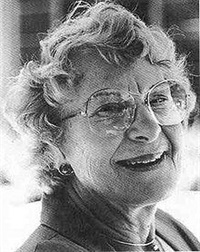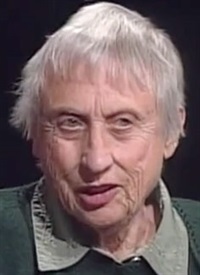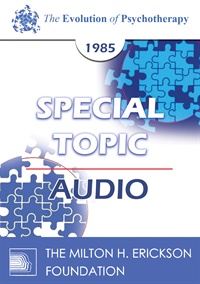EP85 Special Topic 03 - World Peace - Virginia Satir and Mary Goulding
- Average Rating:
- Not yet rated
- Topic Areas:
- Special Topics | Peacebuilding | Cultural and Social Contexts
- Categories:
- Evolution of Psychotherapy 1985 | Evolution of Psychotherapy | Pioneers in Couples and Family Therapy
- Faculty:
- Virginia Satir, MA, ACSW | Mary Goulding, MSW
- Duration:
- 1 Hour 27 Minutes
- Format:
- Audio Only
- Original Program Date:
- Dec 15, 1985
- License:
- Never Expires.
Description
Description: Satir and Goulding emphasize the role of mental health, activism, and community engagement in promoting world peace. Highlights include the Beyond War movement, Peace Ribbon project, Neve Shalom school in Israel, and calls for personal and political action through local and global initiatives.
Credits
Handouts
| Timestamped Transcript (803.8 KB) | 18 Pages | Available after Purchase |
| Timestamped Transcript (710.3 KB) | 15 Pages | Available after Purchase |
| Ericksonian Learning Snapshot (250.2 KB) | 2 Pages | Available after Purchase |
Faculty

Virginia Satir, MA, ACSW Related Seminars and Products
For almost forty years, Virginia Satir has practiced and taught psychotherapy. One of the founders of family therapy, she has co-authored four books and authored five. Additionally, there are a number of books about her approach. She was recipient of the Distinguished Family Therapy Award from the American Association of Marriage and Family Therapy.
Satir wass the co-founder of the Mental Research Institute. She wass past president of the Association of Humanistic Psychology and has a number of honorary doctorates. Her master's degree was granted in 1948 from the University of Chicago School of Social Service Administration.

Mary Goulding, MSW Related Seminars and Products
Mary Goulding, MSW, is one of the leading exponents of Transactional Analysis. Along with her husband Robert Goulding, she developed an approach called Redecision therapy which synthesizes Transactional Analysis and Gestalt. Together they founded the Western Institute for Group and Family Therapy in Watsonville, California, and co-authored two professional books about their approach. There is also an edited volume about the Redecision model. Mary has served as a member of the Board of Trustees of the International Transactional Analysis Association and is a Teaching Member of that organization. Her M.S.W. was granted in 1960 from the School of Social Welfare, University of California, Berkeley.


